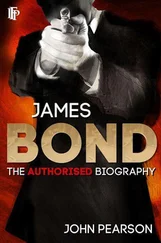It was inevitable that he would apply himself to the drama life of the school. He made his first public appearance cast as the ‘celebrated, underrated nobleman, the Duke of Plaza-Toro’ in an end-of-term production of The Gondoliers . This required him to lead a train of noblemen on stage and announce with great dignity, ‘My Lords … the Duke!’ On opening night, the nobility was assembled, the audience was expectant, and his moment came. Hancock raised his hand in an impressive gesture, his lips parted, but the only sound that emerged was a strangled gargle. The voice of a master from the prompt side urged him to go off and come on again. The crocodile traipsed back into the wings. At the second attempt things were even worse. Tony recalled, ‘My jaws worked hard – like a gramophone without a record on it. Not one other sound could I raise but for a mouse-like squeak. “All right, Hancock,” said the teacher, “you’ve had your moment of clowning.”’ The school magazine reported, ‘The part of the Duke had to be played silently in mime!’ He progressed sufficiently to be offered a part in the next production, The Pirates of Penzance . Tragically, between auditions and casting his voice broke, ‘which was just as well considering what little I had done with it in its intact state,’ wrote Hancock. ‘I sounded like a cross between Lily Pons and Paul Robeson.’ The master, knowing full well that parents were paying large sums for small boys to flaunt their exhibitionist tendencies in this manner, clutched at a particular straw: ‘What I really want is a good stage manager.’ But Hancock’s determination knew no bounds. By making a nuisance of himself he was allowed to join the chorus on strict instructions: ‘Remember, Hancock, you can whack your thigh. But you must not sing.’ Eventually he was reduced to demanding roles like falling out of cupboards and wardrobes: ‘I can claim to have died the death in more ways than one at Durlston Court. The odd thing was that the more I failed as a child actor the more I determined to succeed as an adult … setbacks and adversity in general have always stiffened my resolution and it was so maddening to lie there on the stage being stepped over and prodded for heart beats when I felt I had it in me to make people laugh.’ There was little doubt about that. Many years later his mother told an Australian newspaper that he had been a ‘funny little lad’ since the age of three: ‘He used to do such funny little things that had everyone laughing and always had a funny saying at the tip of his tongue.’
For the moment he was markedly more successful on the playing field. The school records reveal that as a victim of measles in his first term he got off to a slow start both academically – coming twelfth out of twelve in his class – and athletically. He rallied sufficiently to win the school’s welterweight boxing final ‘by a narrow margin – he is quick and hits very hard and showed that he can take as well as give punishment’. He went on that year to excel on the cricket field, taking thirty-five wickets with an average of 6.3 including seven for six against Old Malthouse School. At soccer he scored twenty-two goals in fourteen matches. The following year saw cricket figures of seventy wickets in thirteen games, including one return of eight for twelve. A member of the school shooting team, he was awarded his First Class marksmanship badge in his final year, and on sports day 1938 the Victor Ludorum Cup. His final cricket season revealed figures of fifty-seven wickets at an average of 4.3. The headmaster wrote, ‘In Hancock, A. J. we have one of the best bowlers Durlston has ever had.’ He had been more specific at an earlier date: ‘He always bowls a good length with plenty of nip off the pitch and swings in from the leg rather late.’ As for lessons, he managed to win the prizes for English and French in his final year and to achieve 76 per cent in the Common Entrance Algebra exam to secure his place at public school.
He moved on to the long-established Bradfield College, near Reading, in the autumn of 1938. It might appear he was set securely on the educational ladder to British middle-class success. He stuck it for little more than three terms. His housemaster, J.R.B. Moulsdale, confirmed his aptitude for sport, but as for academia: ‘he was not academically very bright – no qualifications at all – and it is rumoured that his housemaster once wrote a report that said, “this boy thinks that he can make a living by being funny”’. As if to substantiate the pupil’s opinion, Moulsdale added as an aside on another occasion, ‘He was much, much better at imitating his masters. His mother told Joan Le Mesurier of how one visiting day she had gone to the Dean’s office to discuss his academic progress. The news was not encouraging. As she left he told her that she would find her son leaving the hall with the rest of the school. She expressed her concern how she was going to pick him out of the crowd. “It’s simple,” replied the Dean with a twinkle. “He’ll be the only one with his mortarboard stuffed under his arm and his gown trailing on the ground.”’ The impression of a Just William caricature has been endorsed by Richard Emanuel, for whom Hancock acted as fag: ‘He was permanently untidy. His clothes never appeared to fit, his tie veered towards the back of his neck and his collar had a life of its own. He invariably had inky hands and not infrequently ink on his face. His hair was generally in keeping with his collar and tie.’ Whatever his natural propensity for untidiness, Hancock was registering a protest: he hated the place. Soon after the beginning of his fourth term he literally, in his brother’s words, ‘threw the mortarboard and gown away under a bush and jacked it in in disgust’. Fortunately his decision to quit the system, without any apparent opposition from his family, forestalled the prospect of being haunted by a public-school accent for the rest of his life. It is always feasible that family economics were the reason for his departure and that Hancock was at last putting on a good acting performance. The prospect of war could not have had a settling influence either. According to Ronald Elgood, when in the early 1950s Tony found himself playing the Palace Theatre, Reading, ten miles away, Moulsdale invited him back to the alma mater for old times’ sake. He refused point blank, saying how much he loathed Bradfield. Moulsdale appeared somewhat surprised, as though he had not realised his old pupil had this particular chip on his shoulder.
Elgood was a contemporary of Hancock at both Durlston Court and Bradfield. His abiding memory, aside from the fact that there was nothing lugubrious about him – ‘that came later’ – is of a sense of mischief: ‘He was fairly streetwise. I don’t know if he came from a state school. I well recall a game of football with Tony at centre forward. We were naïve little gents and he tapped the ball with his hand when the referee wasn’t looking. We were amazed.’ His tone suggests that they also secretly admired his cheek. He is certainly remembered ‘as a good-natured boy, a nice guy’. To Pat Cox’s wife he was ‘just an ordinary likeable schoolboy’. To Peter Wilson at Bradfield he was ‘a cheerful soul – full of jokes and the joys of spring’. There is no evidence to suggest that he suffered adversely from the notion that it helps to build the character of children by the enforced separation from their loved ones in a repressive, potentially alienating environment, although his brother does point out that he was a shy child. Another Bradfield contemporary, Nigel Knight, observed a ‘complete and utter silence, uncommunicativeness (markedly towards groups)’. Tony admitted to John Freeman being an extrovert till the age of about fourteen, ‘and then it sort of packed up’. He had no idea why. Roger puts it down to public school: ‘You were kept away from the punters. Later I cracked it. I went to a party, at the House of Commons of all places, and I thought nobody knows anybody at this party. I’m no worse off than anybody else. So I started going up to people. But Tony was not particularly gregarious. He was shy. If he did crack it later, it was with the drink, but not without. But it was a wonderful education, particularly in the business my parents were in when you really had no home life. So you were going back to school and seeing your friends, which is really the reverse of what you would expect.’
Читать дальше












